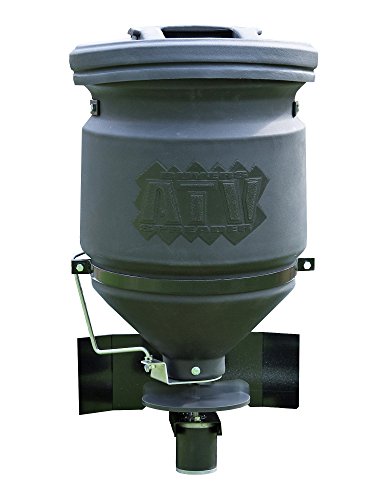Are Atvs Street Legal in Florida
Yes, ATVs are street legal in Florida, but they must meet certain requirements set by the state for registration and operation on public roads. In Florida, ATVs are classified as Off-Highway Vehicles (OHVs) and can only be driven on designated public roads with a speed limit of 35 mph or less, unless there is a posted exception.
To legally operate an ATV on the street, it must be registered with the state, have a valid license plate, and be equipped with required safety features such as headlights, taillights, and turn signals. Riders must also have a valid driver’s license or be at least 16 years old with an OHV education certificate.
It’s important to understand and adhere to these regulations to ensure you are in compliance when operating an ATV on Florida streets.
Overview: Understanding The Current Regulations
ATVs, or All-Terrain Vehicles, offer a thrilling off-road experience for many outdoor enthusiasts. However, it is important to understand the regulations surrounding their use on public roads in Florida.
Florida differentiates between off-road and street-legal ATVs. Off-road ATVs are intended for use on private property or designated off-road trails, while street-legal ATVs are permitted for use on public roads, subject to certain requirements.
To operate a street-legal ATV in Florida, it must be equipped with specific safety features, such as headlights, tail lights, brake lights, turn signals, a horn, and a rearview mirror. Additionally, the ATV must have a valid license plate and be insured.
It is worth noting that different counties in Florida may have additional regulations or restrictions regarding the use of ATVs on public roads. Therefore, it is essential to check with local authorities for any specific requirements.
| Requirements for Street-Legal ATVs in Florida |
|---|
| Headlights |
| Tail lights |
| Brake lights |
| Turn signals |
| Horn |
| Rearview mirror |
| Valid license plate |
| Insurance |
Before taking your ATV on the road, ensure it meets all the necessary requirements and that you are familiar with any additional regulations that may apply in your area. By adhering to the regulations, you can enjoy the thrill of riding your street-legal ATV while staying in compliance with Florida’s laws.
Licensing And Registration For Street-legal Atvs
Are ATVs street legal in Florida? If you want to ride an ATV on the streets of Florida, there are specific licensing and registration requirements that must be met. First, you need to obtain a valid motorcycle license. To do this, you must be at least 16 years old and pass the required exams. Once you have your motorcycle license, you can register your ATV as a street-legal vehicle. This process involves completing the necessary paperwork and paying the registration fees. It’s important to note that not all ATVs can be registered for street use, so make sure your ATV meets the requirements. Finally, you need to understand the insurance requirements for street-legal ATVs. Florida law requires all registered vehicles to be covered by a minimum amount of insurance. Make sure you have the necessary coverage before hitting the streets with your ATV.
Safety Measures And Equipment
Ensuring compliance with safety standards is essential to make your ATV street-legal in Florida. Equipping your ATV with the necessary safety features is the first step. This includes headlights, taillights, and turn signals to ensure visibility during both day and night. Having mirrors and reflectors on your ATV allows you to be aware of your surroundings and makes it easier for other vehicles to see you. Additionally, having a horn helps you alert other drivers of your presence and a brake light signals your intentions when stopping or slowing down.

Credit: www.webbikeworld.com
Operating Rules And Restrictions
Understanding the limitations on where street-legal ATVs can be ridden is essential for ATV enthusiasts in Florida. When it comes to ATV usage, it’s important to follow the specific regulations set forth by the state. ATVs that are designated as street-legal must adhere to the same speed limits and traffic rules as other vehicles on the road.
Riding on highways and public roads requires compliance with additional restrictions. ATVs must be equipped with certain safety features, such as headlights, taillights, turn signals, and mirrors. Operators must possess a valid driver’s license and have the ATV properly registered.
Riding off-road also has its own set of rules and limitations. Riders should consult with the local land management authority to determine specific areas where ATV riding is allowed.
Exceptions And Special Permits
Are ATVs street legal in Florida? The answer is not straightforward, as there are exceptions and special permits that allow certain uses of ATVs on public roads.
For agricultural and construction purposes, ATVs may be used on public roads or highways. These exceptions allow farmers, ranchers, and construction workers to transport equipment, livestock, or building materials. However, certain requirements must be met, such as proper lighting, turn signals, and a slow-moving vehicle sign.
Temporary use permits are also available for special events or designated areas. These permits allow for recreational use of ATVs on public roads for a limited time or within specific boundaries.
If you’re planning an off-road event or race, you’ll need to navigate the process of obtaining special permits. This involves submitting an application, providing proof of insurance, and following any regulations set by the local authorities.
It’s important to understand and comply with the regulations and requirements set by the state of Florida to ensure legal use of ATVs on public roads. Always prioritize safety and follow the guidelines to avoid any legal complications.
Enforcement And Penalties
Operating an ATV in Florida comes with specific regulations and guidelines that must be followed to ensure compliance with the law. Violating these regulations can result in enforcement actions and penalties. The consequences of operating an unregistered or non-compliant ATV can be severe.
Firstly, operating an ATV without proper registration can lead to penalties and fines. Florida law requires all ATVs to be registered with the Florida Department of Highway Safety and Motor Vehicles. Failure to register can result in monetary fines and potential impoundment of the ATV.
Additionally, not adhering to ATV regulations can lead to further consequences. Florida law outlines certain safety requirements for ATVs, including equipment standards and age restrictions for operators. Violating these requirements can result in penalties and citations issued by law enforcement agencies.
Law enforcement agencies are responsible for enforcing ATV regulations and ensuring compliance. Officers have the authority to stop and inspect ATVs to ensure compliance with registration and safety requirements. If violations are found, penalties may be issued, including fines and potential impoundment of the ATV.
In summary, it is crucial to understand and follow the ATV regulations in Florida to avoid enforcement actions and penalties. Proper registration and adherence to safety requirements are essential for operating an ATV legally in the state.
Ensuring Compliance With Federal Laws
The compliance with federal laws is crucial when it comes to ensuring that ATVs are street legal in Florida. To make sure that ATVs meet the necessary requirements, it is important to understand and comply with the federal vehicle safety standards set by the Consumer Product Safety Commission (CPSC). These regulations cover various aspects such as lighting, braking, and stability of ATVs intended for street use. Additionally, emissions standards play a significant role in determining the street legality of ATVs in Florida. It is essential for ATV owners and riders to examine and comply with the emissions standards set by the Florida Department of Environmental Protection (DEP). By following these regulations and standards, ATV owners can ensure that their vehicles are street legal in Florida.
Emerging Trends And Future Possibilities
The state of Florida has been considering potential changes in ATV regulations to address the emerging trends and take advantage of future possibilities. One significant factor that could influence these changes is the impact of electric ATVs on street-legal regulations. As technology advances, the increasing availability of electric-powered ATVs has the potential to redefine the rules for street-legal use. These environmentally friendly vehicles offer reduced noise pollution, lower emissions, and improved energy efficiency, making them attractive for urban environments. The compact size and maneuverability of electric ATVs also make them a viable option for navigating crowded city streets. Evaluating the future of ATVs in urban environments is crucial to ensure a balance between mobility options and safety on public roads. Florida regulators are closely monitoring these trends and considering how they can adapt regulations to accommodate the changing landscape of ATV usage in the state.
Frequently Asked Questions For Are Atvs Street Legal In Florida
Are Atvs Allowed On Florida Streets?
ATVs are not allowed on Florida streets unless they meet specific requirements, such as having headlights, taillights, turn signals, and other safety features, as outlined by the Florida Department of Highway Safety and Motor Vehicles.
Can You Ride Atvs On Public Roads In Florida?
No, you cannot ride ATVs on public roads in Florida. ATVs are considered off-road vehicles and are only permitted on private property or designated off-road trails.
Are Atvs Allowed On Highways In Florida?
No, ATVs are not allowed on highways in Florida. They are considered recreational vehicles and are designed for off-road use only. Riding an ATV on a highway is both dangerous and illegal.
What Are The Rules For Driving An Atv In Florida?
To legally drive an ATV in Florida, you must be at least 16 years old and hold a valid driver’s license. Additionally, ATVs must be registered and titled with the Florida Department of Highway Safety and Motor Vehicles if they are operated on public property.
Conclusion
It is important to understand the rules and regulations surrounding ATV usage in Florida. While ATVs may not be street legal for general use, they can be used on designated off-road trails and private property. It is crucial to prioritize safety and adhere to all applicable laws when operating an ATV.
By familiarizing yourself with the specifics, you can enjoy the thrill of ATV riding while staying within legal boundaries. Remember, being a responsible ATV rider is essential for both your safety and the preservation of the environment.



